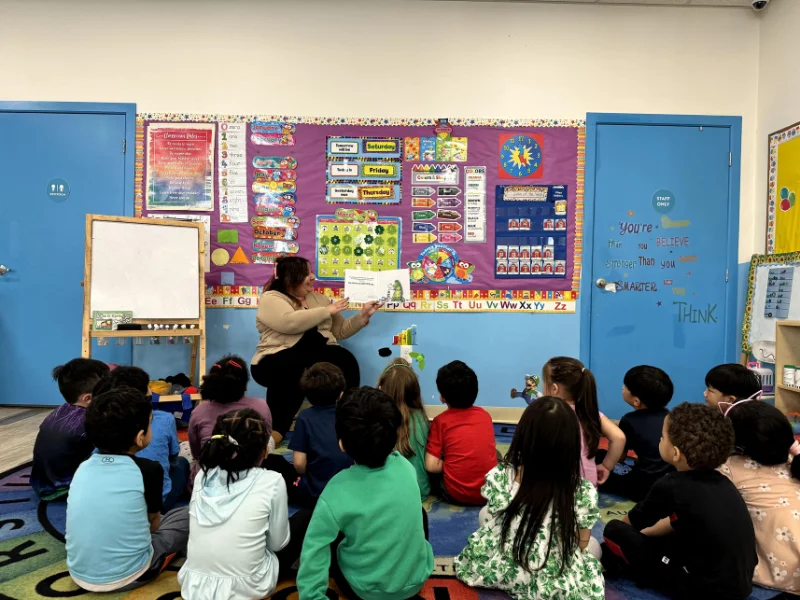With your constant support and encouragement, your kid will thrive in every aspect of learning the more active you are with their education. A feeling of community and belonging is also fostered through strong ties between home and school.
Change in Family Engagement
Helping students with schoolwork and signing up for classroom parties or field excursions have always been part of it. While both are still vital, family engagement has evolved significantly. “Family participation helps to encourage and support the social, emotional, physical, intellectual, and vocational development of kids,” according to the National Alliance for Secondary Education and Transition.
A More Comprehensible Approach
At least 50 research studies on the subject all point to advantages such as reduced behavioral issues, increased attendance and improved cognitive and social-emotional development, not to mention the formation of a lifetime love of learning. Learn More
It’s also worth noting that, in addition to the classic nuclear family, families might include other key persons in a child’s life. The involvement of numerous persons in a child’s education is beneficial. Encourage grandparents, aunts and uncles, stepfamilies, and those that the kid considers family to participate in their educational journey.
Here are some suggestions for strengthening your bond:
Attend School Events
Throughout the school year, parents are usually given a range of options for showing up for their children. Leaders aim to stagger activities to make it more likely that parents or loved ones will be able to attend.
- Daytime including celebrations in the classroom, grandparent days, holidays, field days, and so on.
- Evening events include Curriculum Nights, Open Houses, and Spaghetti Dinners, among others.
- Sports, chorus, band, theater, and other extracurricular activities are examples. You are welcome to attend as a spectator, but consider bringing extended family or close friends whenever feasible. Even if your kid isn't participating, consider attending these sorts of activities with them to strengthen your bond with the school community.
Be a Guest Reader
Younger children like it when their loved ones read to them and their pals. Even at the newborn and toddler stages, it’s a thrilling occasion that makes them proud.
- Work with your child's teacher to find a time that works best for you; they'll typically be pleased to accommodate you.
- If virtual alternatives remain after the epidemic, take advantage of the chance to include family members who may reside in other locations as a pleasant surprise.
Share a Hobby or Your Career
Connecting with your kid and their classmates via an activity, a passion, or an area of expertise is a terrific way to build connections, offer support, and connect.
- Plan a basic demonstration, such as crafts, photography, cookery, or other similar activities.
- Share career-related advice, such as how to wash your teeth correctly (if you're a hygienist or dentist), art lessons (if you're an artist or illustrator), or showcasing equipment and vehicle photographs (if you're a mechanic) (carpenter or mechanic). There are several alternatives!
- You might even propose combining an after-school activity with a passion or a profession. As an example, assist in the planning of a safety night to discuss topics like fires, booster seats, and biking.
Share Cultural Items
One of the most crucial aspects of inclusion is classroom representation. Sharing objects from your child’s home life may be really beneficial. This also provides an opportunity for the other students and the teacher(s) to learn more about your family and cultural background.
- Take pictures of noteworthy things and tell the students about their history.
- Share your favorite songs, music, books, or other interesting objects.
- Inquire about alternatives for sharing food, clothes, and customs, among other things.
Improve Communication
Maintaining regular contact with your child’s school allows both parents and teachers to share objectives, stories, and reassurances. It also allows for a foundation to be built for a partnership between families and teachers. While families with smaller children are often updated on care routines on a daily basis, older children are seldom updated on a daily basis.
- Show your interest and support by corresponding regularly via phone, email, notes, or school apps, like SproutAbout.
- Make it a point to attend planned conferences throughout the year.
Start with this list and see what more ideas you can come up with. Share your interests with your child’s teacher or school leadership to see if there are other helpful ways you can get involved.






